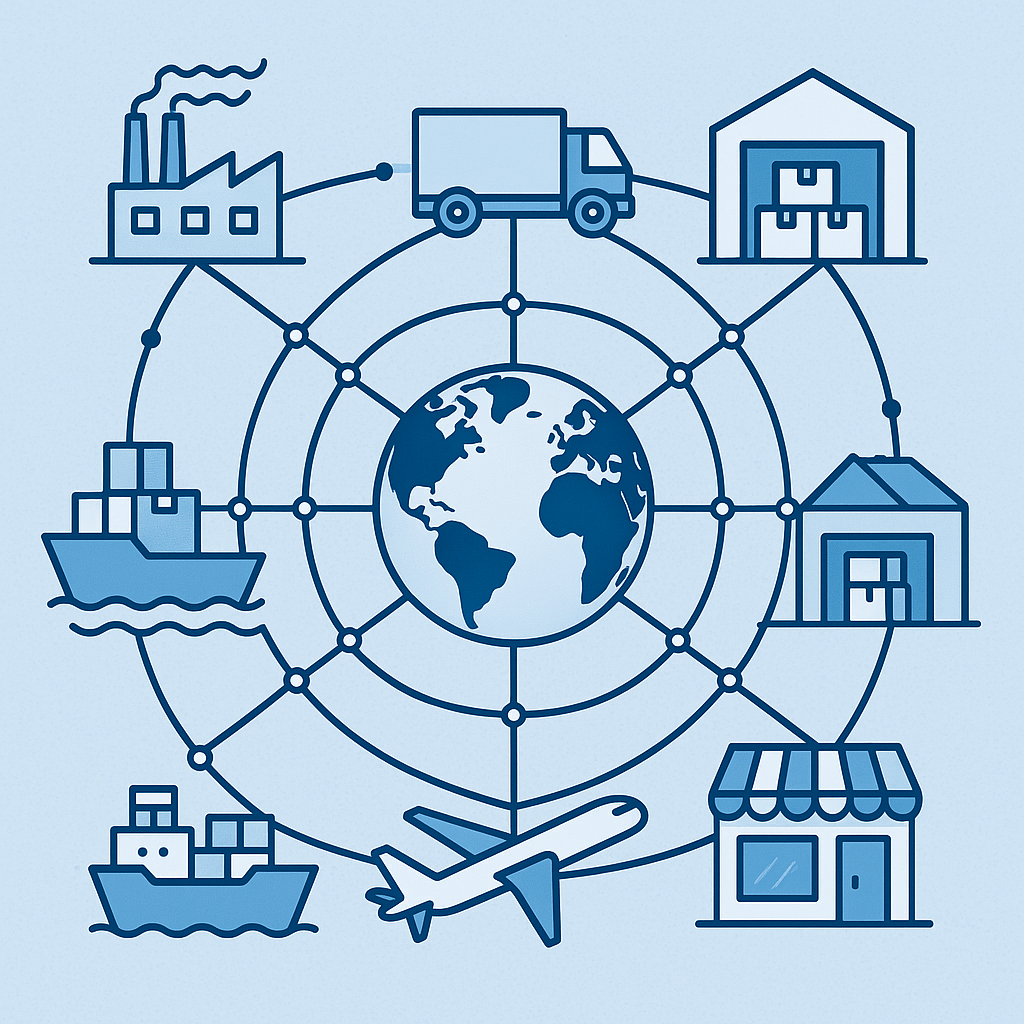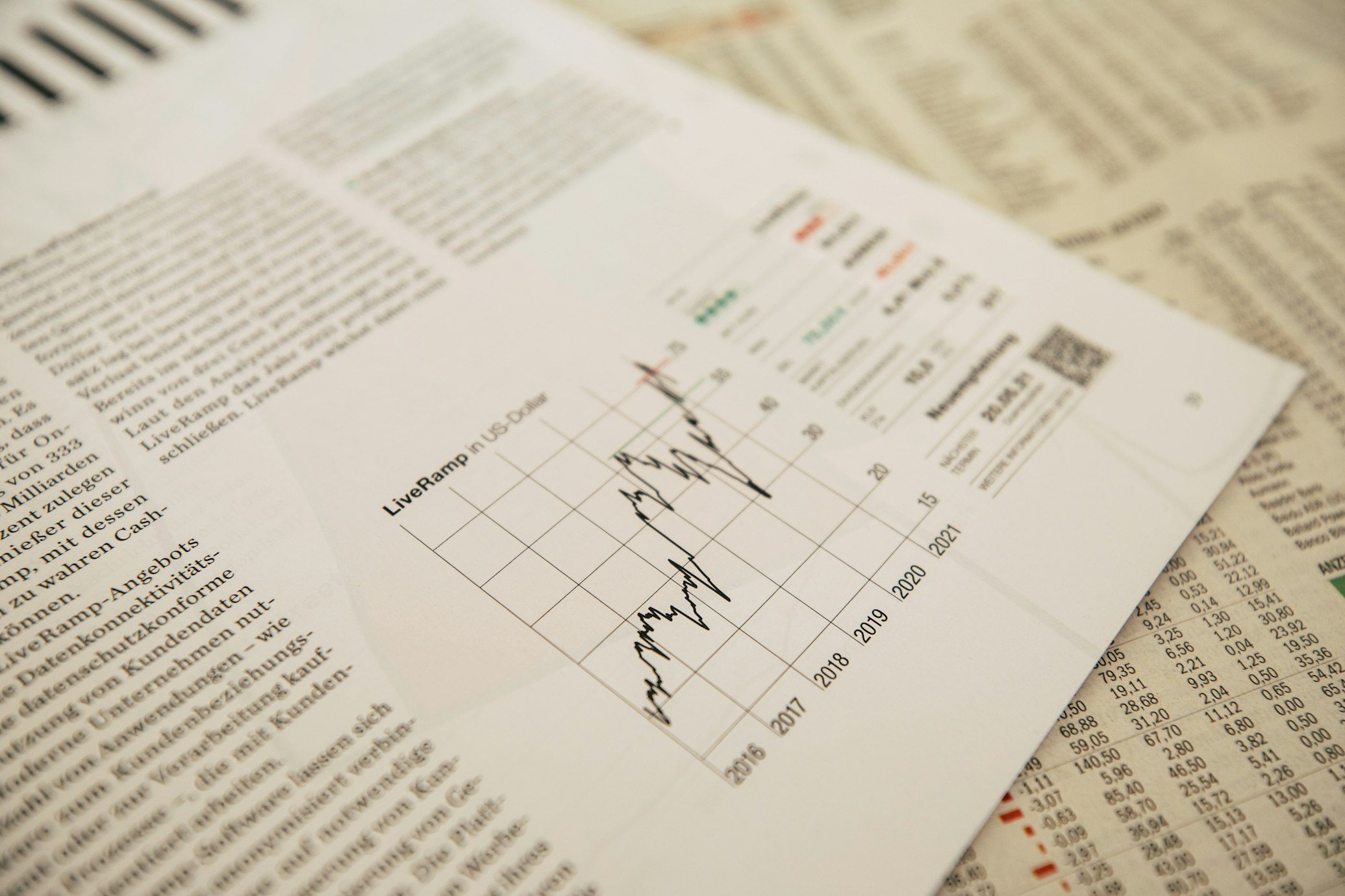The integration of artificial intelligence (AI) into supply chain operations has accelerated significantly, transforming traditional processes into proactive, data-driven systems. Recent advancements are reshaping how businesses manage their supply chains, with generative AI and autonomous systems leading the way in 2025. This report examines the cutting-edge developments in AI applications for supply chain management, highlighting how these technologies are driving efficiency, reducing costs, and creating more resilient operations.

The Rise of Generative AI in Supply Chain Operations
Generative AI (GenAI) represents the latest evolution in supply chain technology, offering capabilities that surpass traditional AI implementations. As of March 2025, GenAI has emerged as a transformative force that enables comprehensive improvements across core aspects of supply chain management [5]. Unlike earlier AI applications that were often complex and required specialized expertise, GenAI simplifies user interfaces and makes advanced analytics accessible to non-technical users.
Democratizing Advanced Analytics
One of the most significant benefits of GenAI is its ability to embed sophisticated supply chain intelligence and complex tools into accessible workflows. Tasks that traditionally required specialized algorithms and expert knowledge—such as forecasting and supply planning—are now available at users’ fingertips [5]. This democratization of advanced analytics enables a broader range of employees to make data-driven decisions without extensive technical training.
Enhanced Human-Machine Collaboration
GenAI is transforming how humans interact with supply chain systems. By providing intuitive interfaces and natural language processing capabilities, these systems allow supply chain professionals to query complex data sets and receive actionable insights in real-time [5]. For example, AWS Supply Chain’s Amazon Q offering provides supply chain professionals with a GenAI assistant that offers summarized views of key risks around inventory levels and demand variability, while visualizing tradeoffs between different possible scenarios[2].
Autonomous Orchestration
In more mature implementations, GenAI enables autonomous orchestration—coordinating activities and processes across the supply chain without manual intervention [5]. This represents a significant advancement over earlier AI systems that required constant human oversight and decision-making.

The Emergence of Agentic AI in Supply Chain
The latest technological shift in supply chain AI is the move toward Agentic AI, which represents a substantial evolution from traditional AI agents. As of April 2025, this approach is gaining traction for its ability to handle complex, interconnected supply chains[4].
From Rule-Based AI to Autonomous Decision-Making
While traditional AI agents follow predetermined rules and rely on human oversight, Agentic AI can make decisions independently, adapt in real-time, and continuously learn from changing conditions [4]. This capability enables organizations to apply artificial intelligence to increasingly complex supply chain environments.
Coordinated Multi-Agent Systems
Agentic AI coordinates multiple specialized AI agents simultaneously, with each responsible for specific tasks within the supply chain ecosystem. For example, a system designed to minimize equipment downtime might integrate predictive maintenance agents that monitor sensor data, inventory agents that check for spare parts, procurement agents that order additional components, logistics agents that coordinate deliveries, and maintenance scheduling agents that ensure technicians are available when needed4. The coordination of these agents creates a comprehensive, responsive system that can adapt to changing conditions faster than traditional approaches.
Key Applications Driving Supply Chain Transformation
Recent implementations of AI in supply chains focus on several high-impact areas that deliver measurable business value.
Advanced Demand Forecasting
AI-powered predictive analytics have moved beyond analyzing historical sales data to incorporate real-time information about market trends, weather patterns, and upcoming events through system integrations4. This dynamic approach provides more accurate demand forecasts than traditional methods, enabling companies to optimize inventory levels, minimize stockouts, and reduce excess inventory costs [12].

Intelligent Inventory Optimization
The latest AI inventory management systems have automated what was previously a manual, spreadsheet-driven process. Smart algorithms now determine optimal stock levels by considering multiple factors, including demand patterns, lead times, and service level goals4. This real-time visibility ensures companies maintain just the right amount of inventory, preventing both overstock and stockout situations12.
Supplier Risk Management and Selection
AI systems now help supply chain managers make data-driven decisions when selecting suppliers by analyzing performance data, current bids, pricing, financial stability, and even geopolitical factors4. This comprehensive approach to supplier evaluation contributes to more resilient supply chains and more reliable partnerships.
Autonomous Logistics and Route Planning
Machine learning algorithms optimize transportation routes in real-time, considering variables like traffic, weather, and fuel costs34. This optimization reduces transportation expenses, decreases delivery times, and contributes to sustainability goals through reduced carbon emissions4.
Smart Warehousing Technologies
The integration of AI with IoT technologies like RFID tags is transforming warehouse operations. AI systems analyze real-time inventory data to optimize picking routes, significantly speeding up order processing4. Major companies like Amazon are deploying AI-powered robotics in fulfillment centers, where intelligent systems autonomously navigate warehouse aisles and retrieve specific items4.
Leading AI Vendors Transforming Supply Chain Operations
Several technology providers are at the forefront of supply chain AI innovation in 2025, offering increasingly sophisticated solutions.
Cloud-Based AI Solutions
AWS Supply Chain has expanded its AI capabilities to provide end-to-end visibility and insights. Its Amazon Q offering serves as a GenAI assistant that helps supply chain professionals visualize risks and evaluate different scenarios2. Similarly, Microsoft has introduced Copilot technology across its ERP portfolio, including Dynamics 365 Supply Chain Management, providing AI assistance for complex supply chain processes2.

Specialized AI Platforms
C3.ai has developed a generative AI platform specifically built for enterprise supply chain applications. The C3 AI Supply Chain Suite offers predictive AI applications for supply chain planning and execution, enabling proactive management rather than reactive responses2. Blue Yonder’s Orchestrator leverages generative AI capabilities combined with deep supply chain domain knowledge to synthesize data-driven insights for smarter decision-making2.
Integrated Supply Chain Solutions
SAP is incorporating its GenAI copilot, Joule, throughout its cloud solutions, including its spend management software2. Kinaxis has unveiled Maestro (formerly RapidResponse), an AI-powered user experience that boosts productivity by helping users quickly learn from documentation and best practices while generating dashboards and scenarios2.
Quantifiable Benefits of AI in Supply Chain Operations
Recent implementations of AI in supply chains have delivered significant measurable benefits across multiple dimensions.
Operational Efficiencies
AI implementations are driving substantial cost reductions in supply chain operations. According to McKinsey research cited in April 2025, AI in supply chain management can lower logistics expenses by approximately 15%4. These savings come from various sources, including optimized transportation routes, reduced inventory carrying costs, and more efficient warehouse operations.
Enhanced Decision-Making
The latest AI systems provide supply chain managers with improved forecasting and real-time tracking capabilities, delivering the insights needed for faster, more accurate decision-making4. Some advanced AI tools now function as advisors for decision-makers, while others can assess multiple variables before making autonomous real-time decisions4.

Sustainability Improvements
AI-driven demand predictions help maintain optimal inventory levels, reducing excess storage costs and minimizing waste. Route optimization increases fuel efficiency, lowering carbon emissions and promoting more sustainable supply chain operations4.
Challenges in Implementing Advanced AI Solutions
Despite the significant potential benefits, organizations face several challenges when implementing the latest AI technologies in their supply chains.
Complexity and Integration Issues
Many companies struggle with the complexity of implementing AI solutions and integrating them with existing systems. The most advanced implementations now focus on aligning GenAI deployment with business objectives and identifying workflows where the technology can add the most value5.
Talent Shortages
As supply chain technology grows more complex, the shortage of skilled professionals capable of implementing and managing these systems intensifies. Companies must adopt strategies to attract and retain talent with expertise in both supply chain operations and advanced AI technologies5.
Adoption Barriers
Traditional approaches to AI implementation often focused on individual use cases rather than comprehensive transformation. Effective implementation now requires rethinking end-to-end workflows and building partner ecosystems to ensure that AI promotes sustainable improvements in ways of working, automation, and analytics5.
Conclusion
The latest developments in AI for supply chain management represent a significant evolution from earlier applications, with generative AI and agentic systems leading the transformation in 2025. These technologies are enabling more autonomous, intelligent, and responsive supply chains that can adapt to changing conditions in real-time. By simplifying user interfaces, automating complex operations, and generating actionable insights from massive data sets, advanced AI solutions are overcoming the limitations of previous implementations.
For organizations looking to maintain competitive advantage, adopting these cutting-edge AI technologies is becoming increasingly essential. The most successful implementations align technology deployment with business objectives, prioritize high-value workflows, and build comprehensive ecosystems that support sustainable improvement. As these technologies continue to mature, we can expect even greater levels of automation, optimization, and intelligence across global supply chains.
Citations:
- https://www.forbes.com/sites/kathleenwalch/2025/02/18/how-ai-is-reshaping-the-entire-supply-chain/
- https://supplychaindigital.com/technology/why-ai-is-future-of-supply-chain
- https://aiola.ai/blog/ai-in-supply-chain-management/
- https://gainsystems.com/blog/ai-in-supply-chain-how-automation-optimization-improve-efficiency/
- https://www.bcg.com/publications/2024/genai-reimagines-supply-chain
- https://www.linkedin.com/pulse/rise-agentic-ai-how-intelligent-agents-transform-supply-luis-juarez–fnaoe
- https://www.forbes.com/councils/forbesbusinessdevelopmentcouncil/2024/11/12/advanced-ai-and-robotics-the-future-of-logistics-and-supply-chains/
- https://www.ibm.com/think/topics/ai-inventory-management
- https://www.strategyand.pwc.com/gx/en/insights/2016/digitization-more-efficient.html
- https://www.gartner.com/en/newsroom/press-releases/2025-03-18-gartner-identifies-top-supply-chain-technology-trends-for-2025
- https://www.supplychaintoday.com/autonomous-supply-chain-cheat-sheet/
- https://erp.today/oracle-ai-agents-help-transform-supply-chain-workflows/
- https://www.wns.com/perspectives/articles/articledetail/1277/how-ai-is-transforming-supplier-risk-management-in-retail-cpg
- https://www.csaengineering.com.au/the-future-of-supply-chain-management-trends-to-watch-in-2025/
- https://www.oracle.com/au/scm/ai-supply-chain/
- https://www.ey.com/en_in/insights/supply-chain/how-generative-ai-in-supply-chain-can-drive-value
- https://www.weforum.org/stories/2025/03/harnessing-ai-technology-to-build-autonomous-supply-chains/
- https://www.forbes.com/sites/ashokviswanathan/2025/01/04/supply-chain-trends-for-2025/
- https://www.mckinsey.com/capabilities/operations/our-insights/beyond-automation-how-gen-ai-is-reshaping-supply-chains
- https://www.scmr.com/article/ai-key-to-navigating-supply-chain-challenges
- https://www.weforum.org/stories/2025/01/ai-supply-chains/
- https://hbr.org/2025/01/how-generative-ai-improves-supply-chain-management
- https://supplychaindigital.com/digital-supply-chain/top-10-trends-2024-in-supply-chain
- https://www.ibm.com/think/topics/ai-supply-chain
- https://www.gartner.com/en/newsroom/press-releases/2025-03-18-gartner-identifies-top-supply-chain-technology-trends-for-2025
- https://www.mckinsey.com/capabilities/operations/our-insights/beyond-automation-how-gen-ai-is-reshaping-supply-chains
- https://kpmg.com/xx/en/our-insights/ai-and-technology/supply-chain-trends-2024.html
- https://www.business-reporter.co.uk/management/ai-and-automation-in-the-supply-chain
- https://www.supplychainbrain.com/articles/41089-ai-in-2025-expect-another-wave-of-innovation-in-supply-chain
- https://gjia.georgetown.edu/2024/02/05/the-role-of-ai-in-developing-resilient-supply-chains/
- https://www.ey.com/en_gl/insights/supply-chain/how-generative-ai-in-supply-chain-can-drive-value
- https://www.sap.com/australia/products/artificial-intelligence/supply-chain.html
- https://www.relexsolutions.com/resources/how-can-ai-enhance-sustainability-in-supply-chain/
- https://globalhrcommunity.com/the-future-of-supply-chain-management-integrating-ai-and-blockchain/
- https://www.plainconcepts.com/genai-supply-chain/
- https://supplychains.com/the-impact-of-agentic-ai-on-supply-chain-management/
- https://research.aimultiple.com/logistics-ai/
- https://relevanceai.com/agent-templates-tasks/inventory-management-ai-agents
- https://theddcgroup.com/business-process-insights/what-is-supply-chain-digitization-and-why-does-it-matter
- https://throughput.world/blog/optimize-demand-planning-using-artifical-intelligence/
- https://www.maersk.com/insights/sustainability/2023/06/01/ai-technology-can-boost-sustainable-logistics
- https://triniti.eu/insights/how-blockchain-and-artificial-intelligence-ai-could-revolutionize-the-protection-of-supply-chains-for-authentic-goods/
- https://www.forbes.com/sites/garydrenik/2025/03/11/ai-predictions-on-2025-supply-shortages-and-industry-impact/
- https://www.supplychaindive.com/news/manifest-2025-takeaways-ai-technology/741029/
- https://www.scmr.com/article/supply-chain-digital-twin-technologies
- https://www.sap.com/resources/ai-in-supply-chain-management
- https://www.ispartnersllc.com/blog/scrm-supply-chain-risk-management/
- https://www.ibm.com/thought-leadership/institute-business-value/en-us/report/supply-chain-ai-automation-oracle
- https://www.bhp.com/news/bhp-insights/2025/02/the-role-of-digital-twins-and-ai-in-enhancing-decision-making-in-the-mining-industry
- https://cloud.google.com/solutions/supply-chain-logistics
- https://www.linkedin.com/pulse/ai-supply-chain-risk-management-transforming-challenges-priyanka-sain-uzqmf
- https://www.thehackettgroup.com/insights/2025-supply-chain-agenda-2502/
- https://www.leewayhertz.com/ai-in-demand-forecasting/
- https://www.globaltrademag.com/supply-chain-2025-predictions/
- https://www.mckinsey.com/capabilities/quantumblack/our-insights/digital-twins-the-key-to-unlocking-end-to-end-supply-chain-growth
- https://www.forbes.com/sites/ashokviswanathan/2025/01/04/supply-chain-trends-for-2025/
